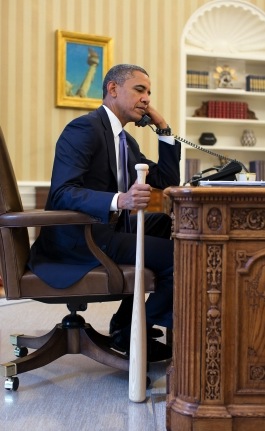A federal judge on Wednesday blocked the government from enforcing a statute in a recent defense authorization bill permitting the indefinite detention without trial of terrorism suspects, even American citizens, only to have it appealed by the Obama administration.
 Congress passed the National Defense Authorization Act last year, which includes provisions codifying indefinite detention for individuals suspected of allying with or supporting al-Qaeda or its affiliates, although the language is quite vague.
Congress passed the National Defense Authorization Act last year, which includes provisions codifying indefinite detention for individuals suspected of allying with or supporting al-Qaeda or its affiliates, although the language is quite vague.
A group of journalists, academics and activists have filed suit, claiming the provision is unconstitutional and violates fifth amendment rights to due process. In May, Judge Katherine B. Forrest of the United States District Court for the Southern District of New York agreed, issuing a preliminary injunction barring the government from using the law to detain anyone without trial, and Wednesday she made that injunction permanent in a 112-page opinion.
The Judge concluded that the NDAA law appears to permit the President “to use all necessary force against anyone he deems involved in activities supporting enemy combatants, and therefore criminal laws and due process are suspended for any acts falling within the broad purview of what might constitute ‘substantially’ or ‘directly supporting’ terrorist organizations. If this is what Congress in fact intended,” she said, “no doubt it goes too far.”
The Obama administration, which claims it has no interest in detaining US citizens without charge or trial, filed an appeal to the decision. The Administration’s argument is that the law is not intended to cover free-speech activities and that created no new detention authority that didn’t already exist in the original post-9/11 authorization to use military force.
Bruce Afran, an adjunct law professor at Rutgers University who helped represent the plaintiffs, told the New York Times the Judge’s ruling was a “historic” repudiation of government overreach. “It’s an absolute guarantee of freedom of political debate even in a time of war,” he said.


